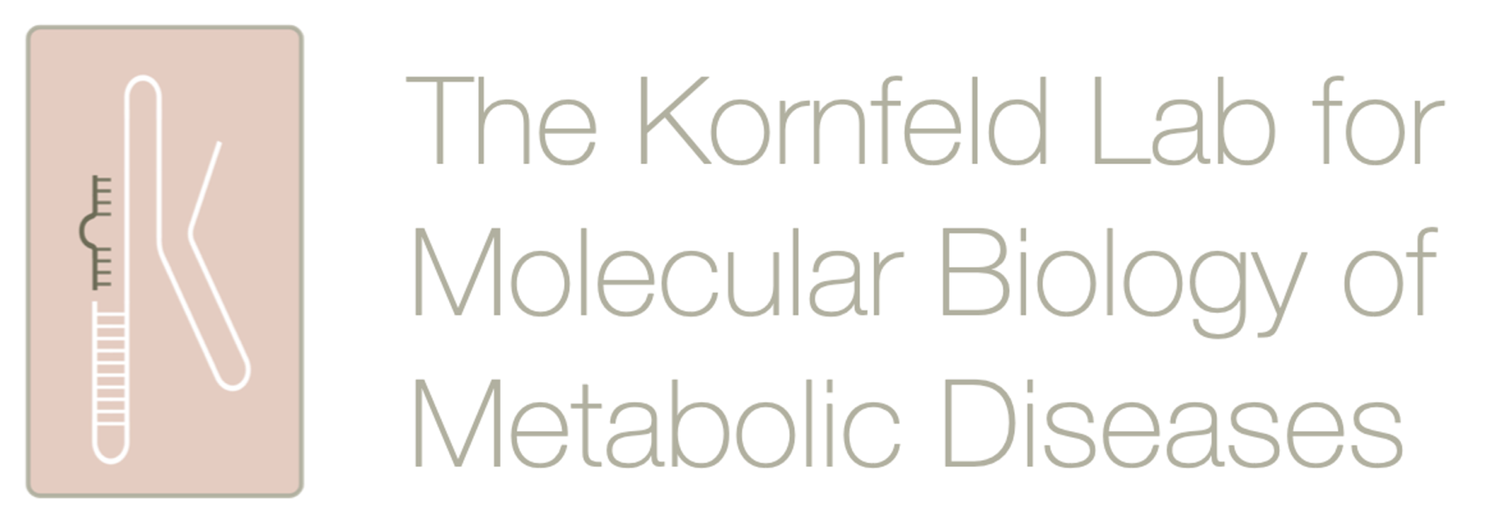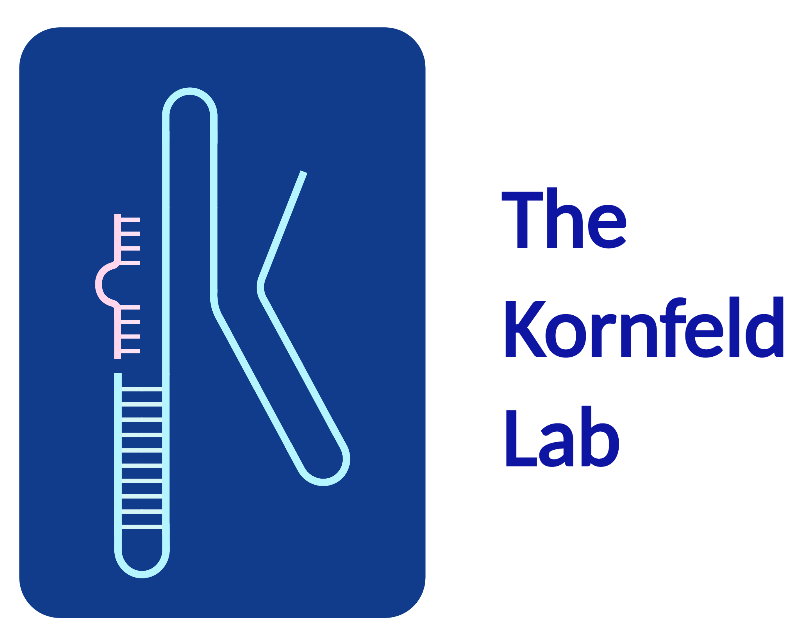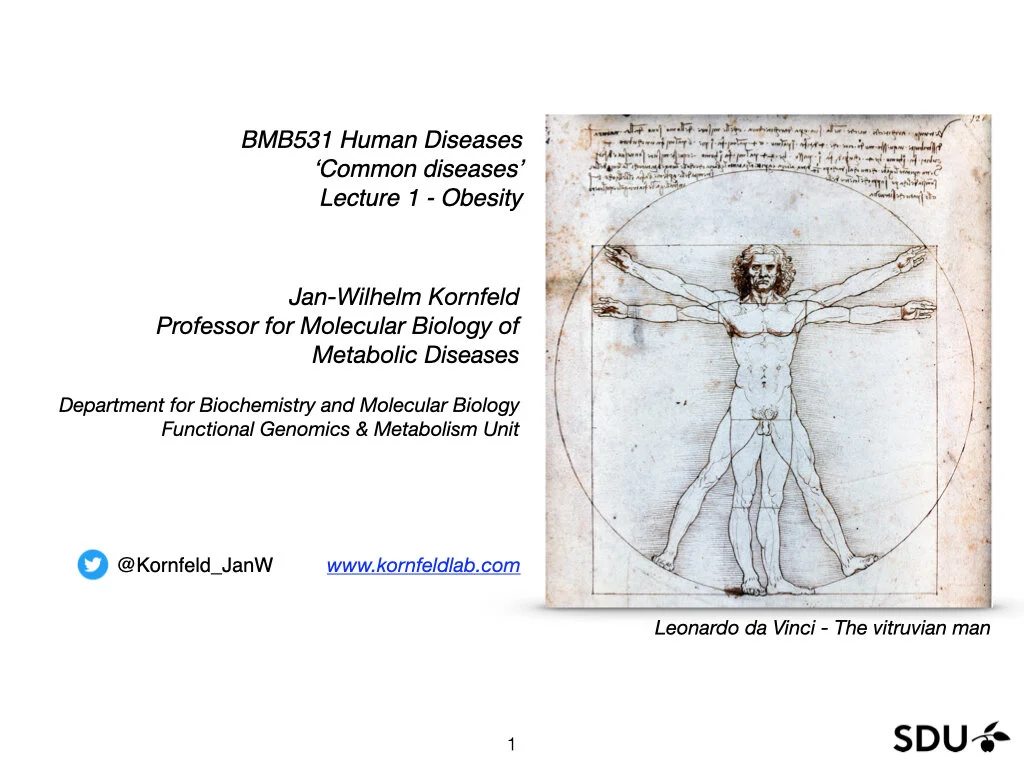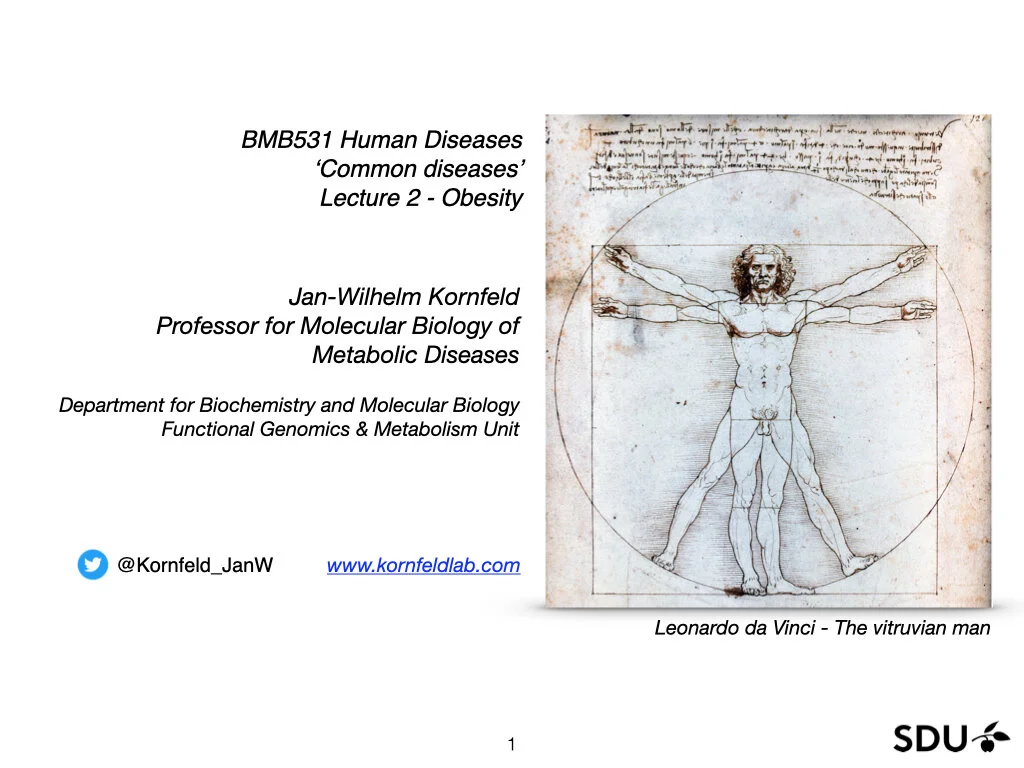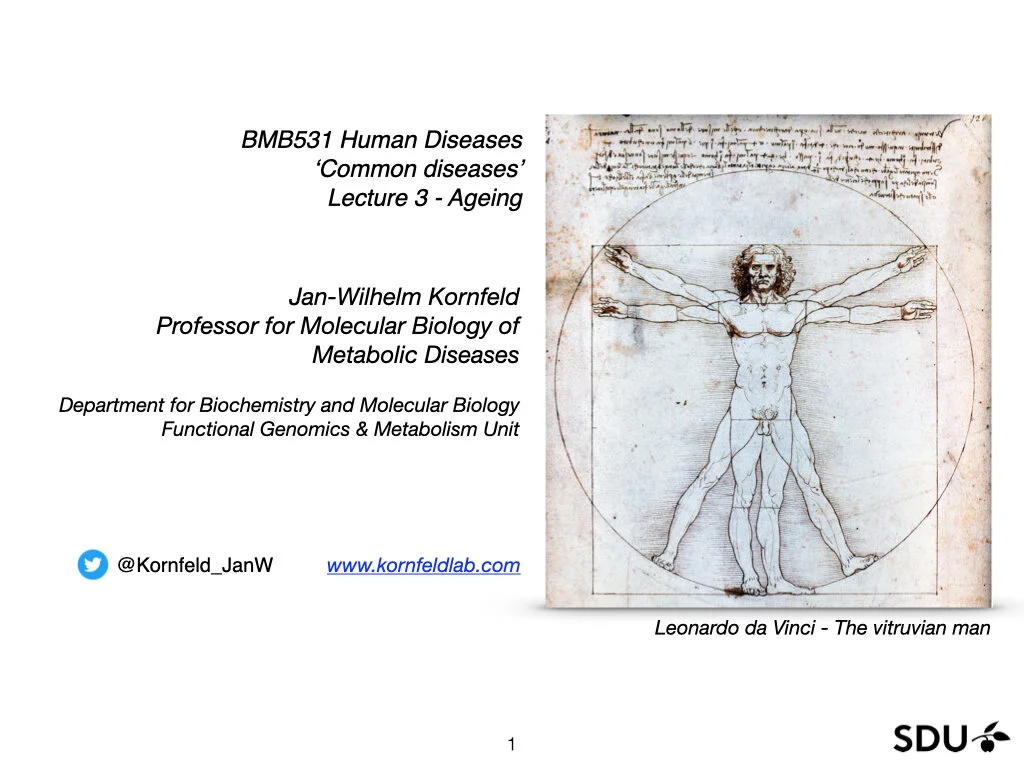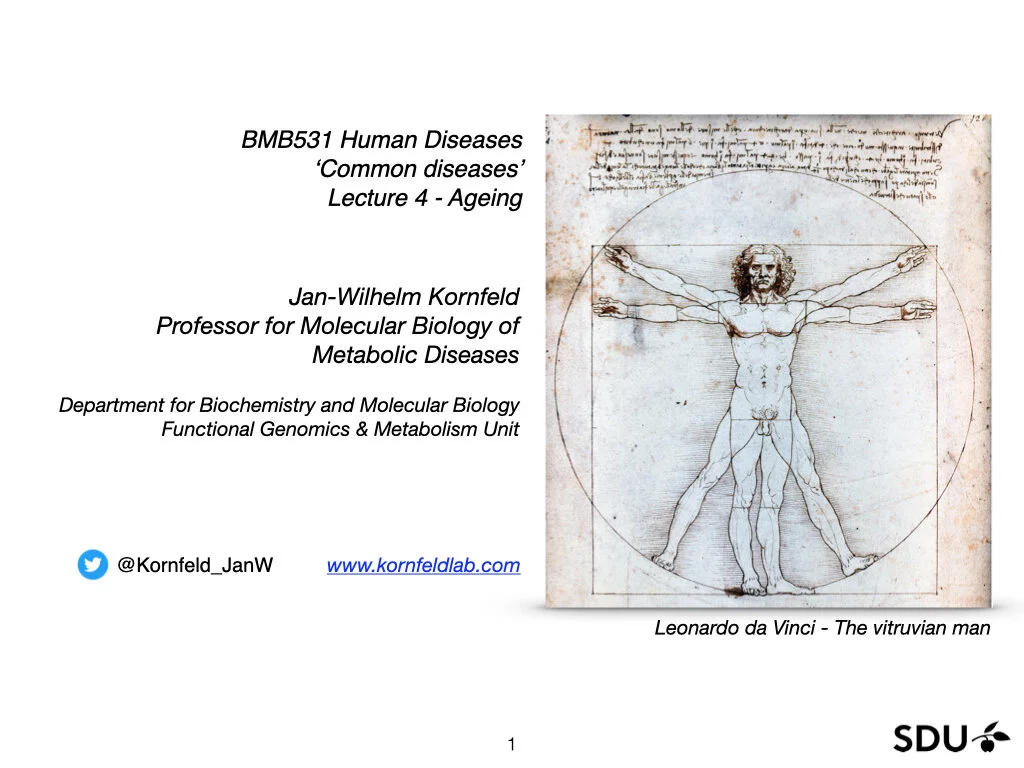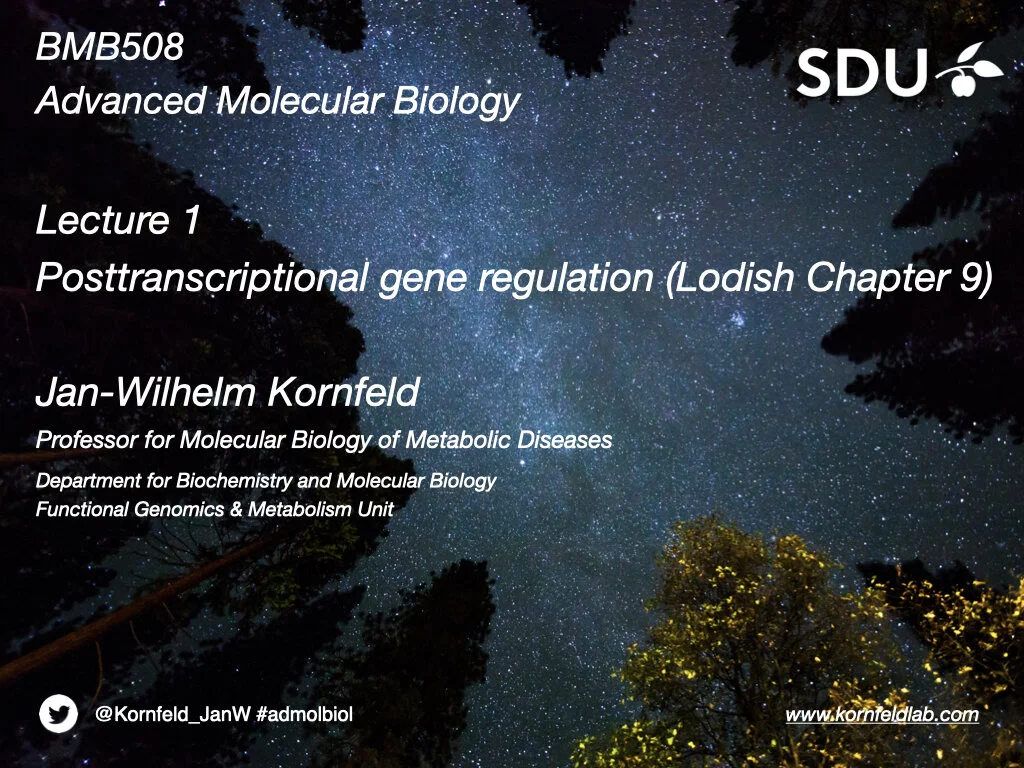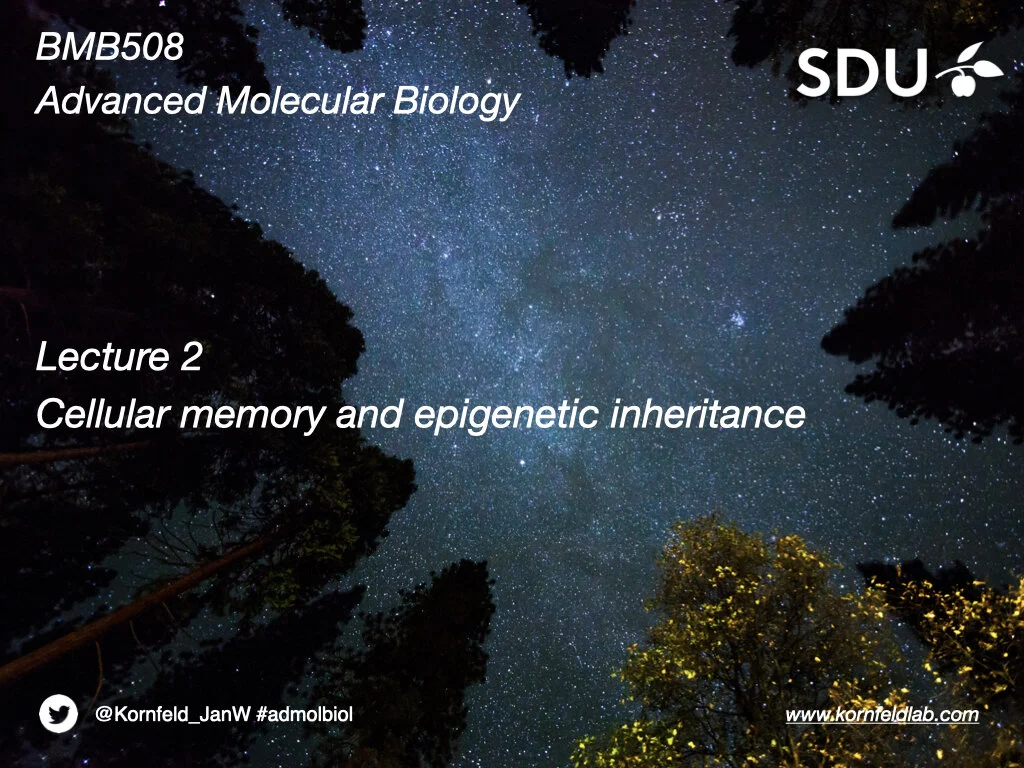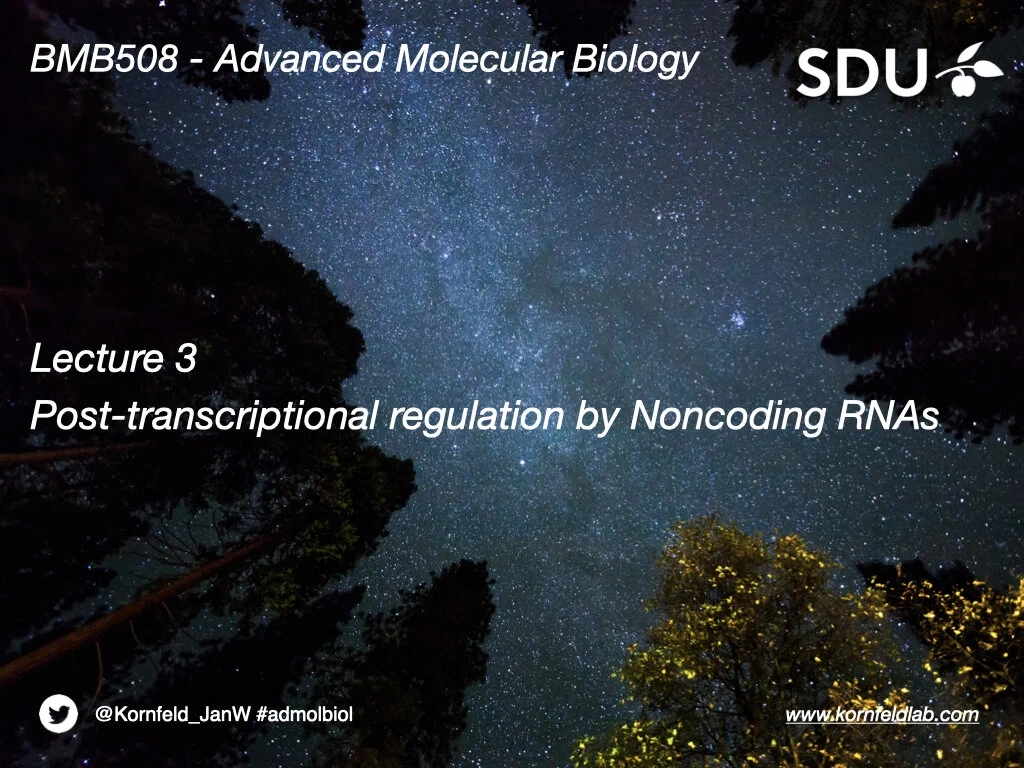Lectures
BMB531 - Common Diseases
Obesity (Lecture 1 and 2)
This lecture will describe the physiological & molecular changes leading to obesity and will explain why obesity constitutes a risk major factor for diabetes, cancer, reproductive & neurodegenerative diseases.
Aging (Lecture 3 and 4)
This lecture will introduce the concept of Aging as disease-like state, explain the molecular changes driving aging-associated decline in cellular & organ function, and will described why many complex disorders correlate with age.
BMB508 - Advanced Molecular Biology
Lecture 1: Post-transcriptional Gene Regulation
Lecture 2: Cellular Memory and Epigenetic Inheritance
In Lecture 1 we will discuss the different molecular modalities of post-transcriptional gene regulation. We will discuss how, after a mRNA is formed, it is processed within the nucleoplasm and the cytoplasm and, crucially, learn how aberrant post-transcriptional control can lead to (congenital) human diseases. Lecture 1 is inspired by Chapter 9 of Lodish 'Molecular Cell Biology (9th Edition) and covers most, but not all parts of this Chapter.
In Lecture 2 welook into how cellular memories are stored in non-genetic or epigenetic modifications to genomic DNA, addresses the role of mono-allelic gene regulation ('Genomic Imprinting') and discuss how changes to lifestyles in parents can lead to long-lasting phenotypic changes in their offspring (epigenetic inheritance). This lecture extends the lecture on chromatin- and epigenetic-mediated cellular memory.
Lecture 3: Post-transcriptional Regulation by Noncoding RNAs
Lecture 4: Molecular Genetic Techniques
In Lecture 3 we will discuss talk about the different types of non-protein coding (Noncoding) RNAs, and how these newly discovered molecules affect gene regulation. We will discuss the impact of aberrant Noncoding RNA regulation for human disease and talk about how manipulation of these Noncoding RNAs can be used to treat disease. As this topic is not well covered in Lodish, we will use a comprehensive review on this topic (Cech et al Cell 2014).
In Lecture 4 we will look into the different Molecular Techniques that we apply in the lab to study gene function. This will include historic and newer technologies like Next-Generation Sequencing, the Cre/LoxP system, CRISPR/Cas9 and viral gene vectors which have revolutionized our understanding of gene regulation and now allow for targeted gene therapy in patients.
